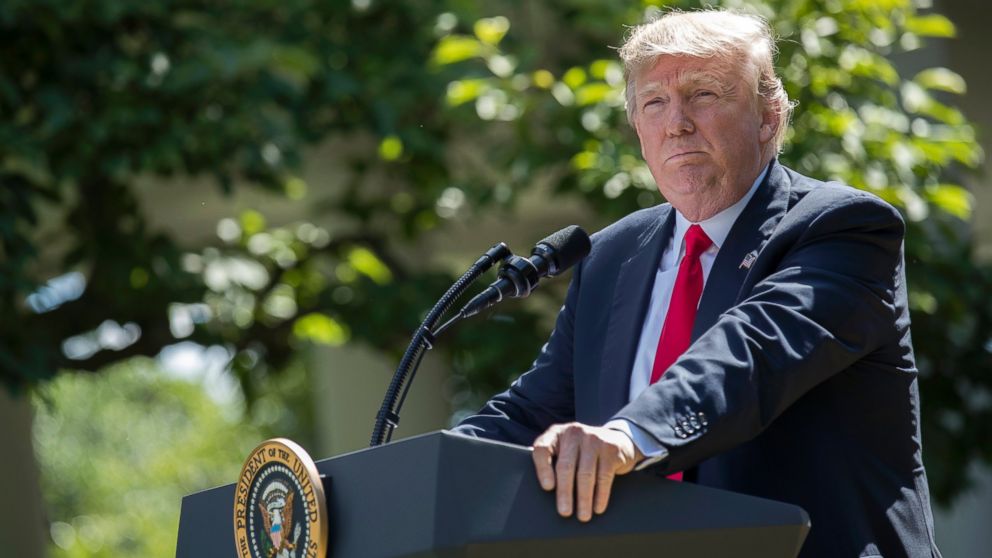ANALYSIS: On Paris Agreement, Trump cedes American leadership role
The president's move on the climate agreement is "intentionally provocative."

— -- "America First" takes America out of the lead –- and places the nation virtually by itself.
President Trump's decision to withdraw the United States from the Paris climate accord has vast implications, ranging from the environmental and the moral to the diplomatic and the crassly political. It's an intentionally provocative move by a polarizing president, laying bare divisions in the country at large and even inside the White House itself.
Most broadly, the moment marks Trump’s decision to cede world leadership in the service of a different brand of American ideology. Trump saw it as a moment for celebration, using the White House Rose Garden to declare loyalty to American workers over world responsibilities.
"I was elected to represent the citizens of Pittsburgh, not Paris," the president said, in a tidy summation of Trumpism's promise and appeal.
With America’s exit, Germany, France and others are positioning themselves to take up mantles of world leadership, after a G7 meeting produced an odd statement on climate that was signed off on by only six nations.
Even China, Russia and India remain party to the climate agreement Trump is leaving. And, Of course, the United States joins Syria and Nicaragua as the only nations in the world not part of the Paris accord; Nicaragua didn’t join in large part because leaders there thought the agreement didn’t go far enough.
The president framed the decision, in part, as an attempt to get a better deal, promising that he would be open to a new round of negotiations with Democrats and world partners. Notably, he did not reaffirm his previous statement that he believes climate change to be a "hoax." Instead, he issued a promise that the U.S. would "be the cleanest."
But Trump is tossing aside a decade of delicate coalition-building on global warming, bucking trends that corporate America and even a growing number of Republicans have seen coming. Other world leaders said the Paris accord cannot be renegotiated, but now the international consensus on climate change in danger of breaking apart again.
The nation’s diplomatic standing is also at stake, an argument understood by Secretary of State Rex Tillerson and Trump’s own daughter and son-in-law. The president goes into this knowing that the nation’s word means less than it once did, with Trump surrendering a seat at future decision-making tables.
Ultimately, Trump knows that his base of supporters don't trust such tables at all. The president chose to make a statement in support of a slogan that he rode to office.
The move delivers on a campaign promise, though perhaps not in the way his supporters might have thought about when they voted Trump. It will not revive coal jobs in the United States, nor will it allow Americans to drive dirtier cars or cut down on their bills if they run air conditioners colder all summer.
Then there are the ultimate stakes: the planet itself. At least while Trump is in office, it would seem that the American-driven crisis of global warming will have solutions that largely exclude America.
ABC News' MaryAlice Parks contributed to this report.



